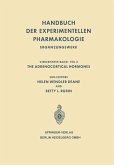Taste receptors monitor the quality of all the food ingested. They are intimately involved in both food acceptance and rejection. The sensation of taste is also important in the regulation of many specific chemicals necessary for maintenance of the body. For example, disturbance of the adrenal glands results in a change in the intake of salt which is necessary for regulation of the sodium balance. Curt Richter's early studies on specific hungers and preference thresholds initiated a large number of studies in this field. The relationship between taste and food intake is now well recognized by physiologists, psychologists and nutritionists. Our current concepts of the neural coding of taste quality and intensity are largely based upon the classical paper by PFAFFMANN in 1941. Many subsequent single nerve fiber studies have added to our understanding. In recent years Zotterman and Diamant have successfully recorded from the human taste nerves as they pass through the middle ear. This allowed them to study the relationships between the response of taste receptors and the resultant taste sensation. No similar feat has yet been accomplished with the visual and auditory systems.
Hinweis: Dieser Artikel kann nur an eine deutsche Lieferadresse ausgeliefert werden.
Hinweis: Dieser Artikel kann nur an eine deutsche Lieferadresse ausgeliefert werden.








